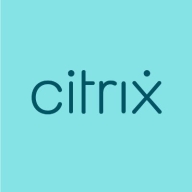


Citrix DaaS and Check Point Remote Access VPN both compete in the virtualization and secure connectivity domain. Citrix DaaS seems to have the upper hand in terms of virtualization capabilities and feature set, while Check Point Remote Access VPN excels in secure integration and ease of use within existing Check Point infrastructures.
Features: Citrix DaaS provides secure desktop access from any device, robust user management, and efficient provisioning services, supporting both VDI and app streaming with WAN optimization. Check Point Remote Access VPN emphasizes secure connectivity, offering reliable access to internal networks with robust encryption and multifactor authentication, integrating seamlessly with Check Point firewall infrastructure.
Room for Improvement: Citrix DaaS needs improvements in the Active Directory policy management, reduction of complexity in setup and integration, and enhanced multimedia support. Check Point Remote Access VPN requires better client update processes, user-friendly management interfaces, and improved Linux support.
Ease of Deployment and Customer Service: Citrix DaaS can be deployed on-premises, in public, or hybrid clouds, offering versatile options with satisfactory support, though some users report variable service quality. Check Point Remote Access VPN is praised for its on-premises deployment strength but could benefit from quicker issue resolution and improved field support.
Pricing and ROI: Citrix DaaS is often viewed as expensive, reflecting its comprehensive feature set, but provides strong ROI by reducing hardware costs. Check Point Remote Access VPN offers competitive pricing, particularly for Check Point firewall users, with strategic licensing offering good value for secure remote access.
Everything we've gained from it makes my job easier day after day, and I see value in it as an engineer.
Microsoft Intune not only saves costs by reducing the number of personnel needed but also offers a comprehensive solution for managing laptops, applications, security, individual access, and enrollment.
Importantly, when someone leaves the company, it helps protect document access on their devices.
It reduces the dependency on being physically present in the office and enhances the overall user experience, saving time and maintaining security.
I have seen a return on investment with fewer employees needed and time saved.
It has reduced the number of support tickets related to remote access by about 30%, saving our IT team significant time.
When a support ticket is submitted, it directly reaches someone with Intune support expertise.
When I contacted Microsoft, they had the same expertise, if not more, which is phenomenal because I felt heard and my problem was solved.
Sometimes, the support provided is excellent, and the representative is knowledgeable, while other times, the service needs improvement.
They are really helpful, and whenever we face any technical or configuration issues, we reach out to them, and they help us resolve the issues as soon as possible.
Contacting the Technical Assistance Centers (TACs) initially can be difficult, but once I get in touch with the TAC team, it is easy to solve problems.
The customer support for Check Point Remote Access VPN has been very helpful and responsive whenever we needed assistance.
If support comes from Ireland, it can be good, rated at nine or ten.
The first level often wastes time because I usually have to escalate to an engineer for proper support.
Citrix support is better than Microsoft support.
The scalability of Microsoft Intune is ten out of ten.
Ideally, we want to automatically segregate devices based on user properties like primary use, but currently, dynamic groups seem limited to device properties.
It supports organizations with 200 endpoints and those with more than 15,000 endpoints.
I don't see that we can hit any kind of roof in our organization.
The scalability of Check Point Remote Access VPN is good as it supports a large number of remote users simultaneously.
Our organization finds Check Point Remote Access VPN handles increased numbers of remote users smoothly without performance issues.
It supports over 100 apps and 20,000 users in our organization, demonstrating impressive scalability.
The platform can scale to very large numbers.
Citrix DaaS offers vast scalability options as workloads can be deployed across multiple data centers like Azure, Google, or AWS.
We have not experienced downtime, bugs, or glitches.
It appears Microsoft Intune undergoes changes without informing customers.
Microsoft Intune has been very stable.
Otherwise, the experience and stability are outstanding.
I have not faced any issue, downtime, or latency with Check Point Remote Access VPN.
Check Point Remote Access VPN is very stable.
I evaluate Citrix DaaS (formerly Citrix Virtual Apps and Desktops service) as a very stable solution and very sturdy in how it operates.
Citrix DaaS allows for satisfactory stability by facilitating workload deployment in various data centers including Azure, Google, or AWS.
Features like unlocking devices sometimes fail, and the support offered for other operating systems is insufficient.
There are communication issues, so you might start working with a feature without knowing if it will be deprecated six months from now.
Many third-party companies offer single-pane-of-glass reporting that shows you what your update environment looks like, how your patch is doing, application status, etc., but Intune's reporting is not intuitive.
The response time is much worse, with the first layer of support lacking sufficient knowledge on how to troubleshoot issues.
Optimizing handshake speed and reducing reconnection delays would improve the user experience, particularly for mobile and hybrid workers.
Deploying these solutions requires higher technical expertise than other solutions.
Citrix should have different pricing based on company size.
Creating App-V applications is not an easy task and could take from hours to weeks without success.
This makes it challenging to remain with them, and it becomes necessary to explore alternatives to achieve the same performance with less expense.
Introductory professional services, like a fast-track service, were included with our E5 membership, and there have been no additional costs.
The Intune suite and add-ons, such as batch management and remote help, are costly.
It costs approximately forty euros per user per month.
I'm getting the hardware at a very reasonable cost that fits my budget.
It is competitively priced, and we have chosen it for its market leadership in the firewall space.
The pricing, setup cost, and licensing are straightforward, though the setup is a bit expensive.
Citrix DaaS is considered expensive, especially for companies that do not require multi-cloud.
Intune excels in configuration and compliance management for Windows 10, ensuring devices receive timely updates and adhere to organizational standards.
Dynamic groups allow us to set conditions for automatic membership, eliminating the need for user intervention or manual review and ensuring a seamless workflow.
Windows Autopatch is the most valuable because it removes the burden of patch management.
The functionality enables secure access for remotely connecting users, which is necessary for our operations.
Check Point Remote Access VPN has positively impacted my organization by improving productivity and given us a workaround in times of downtime.
Check Point Remote Access VPN has impacted my organization positively by providing better security and ensuring our data is safe within the entity.
With Citrix, all connections are outgoing, minimizing firewall vulnerability.
The scalability of Citrix DaaS (formerly Citrix Virtual Apps and Desktops service) is impressive, supporting over 100 apps and a user base of 20,000 within our organization.
Users can use Teams solutions and open a bridge where video and audio are encapsulated within the ICA protocol, which is protected by SSL and certificates for security.
| Product | Market Share (%) |
|---|---|
| Microsoft Intune | 9.5% |
| Citrix DaaS (formerly Citrix Virtual Apps and Desktops service) | 4.2% |
| Check Point Remote Access VPN | 2.4% |
| Other | 83.9% |


| Company Size | Count |
|---|---|
| Small Business | 117 |
| Midsize Enterprise | 46 |
| Large Enterprise | 152 |
| Company Size | Count |
|---|---|
| Small Business | 54 |
| Midsize Enterprise | 31 |
| Large Enterprise | 34 |
| Company Size | Count |
|---|---|
| Small Business | 44 |
| Midsize Enterprise | 21 |
| Large Enterprise | 69 |
Microsoft Intune provides centralized management of mobile devices and applications, ensuring security, compliance, and productivity through integration with Microsoft services like Microsoft 365 and Azure Active Directory.
Organizations use Intune for managing mobile devices and applications, enhancing security and compliance across platforms. With features like single sign-on, conditional access, and zero-touch deployment via Autopilot, it facilitates efficient operations. Intune's scalability, easy enrollment, and capabilities such as remote wipe support diverse device management, offering robust data protection and efficient operation. Despite its features, improvement areas include reporting, compatibility with non-Microsoft devices, and better support for macOS and Linux devices.
What are the key features of Microsoft Intune?
What benefits should users look for in reviews?
In industries such as finance, healthcare, and education, Microsoft Intune is implemented to ensure secure and compliant device management. Companies leverage its capabilities to deploy security policies and manage both corporate-owned and BYOD environments, facilitating a unified approach to data protection and compliance.
Remote secure access VPN is a solution that provides users with remote access to an organization’s network. The host may have VPN client software loaded or use a web-based client. The solution leverages security features like multi-factor authentication, endpoint scanning, and encryption of all data in motion.
Check Point Remote Access VPN provides individuals with protected and efficient access to a company network from anywhere. This strategy fosters collaboration and connectivity between distributed teams and offices.
Features of Check Point Remote Access VPN
Key features of the secure remote access VPN include:
The system enforces endpoint security with endpoint compliance. It monitors and verifies the security status of each endpoint and reports back to the Security Gateway. The gateway, in turn, checks the compliance level and directs the connectivity to the right resources.
Users can deploy the Remote Access VPN in one of three ways:
Remote Access VPN is centrally managed. The centralized console enables management and enforcement of policies with a single log-in.
The Remote Access VPN has a web portal that users can use to connect securely to corporate applications, such as web-based resources, file-sharing, and email. Administrators can customize the web portal to match the brand identity.
Remote Access VPN offers two choices for remote access:
The authentication features include password management, RADIUS challenge/response, CAPI software, and hardware tokens. P12 certificates, and SecurID.
The system establishes a VPN tunnel on demand. It also re-arranges connections when roaming. The tunnel can automatically tear down when the user is on the corporate LAN.
There are several connection features, such as Hotspot detection, office mode IP, split tunneling, and automatic fallback to HTTPS.
Benefits of Check Point Remote Access VPN
One of the key advantages of Remote Access VPN is that it provides remote workers with a secure way to connect to a corporate network from any device, including their personal devices. The data encryption in transit enables them to securely access the resources they need for their tasks.
It also provides IT support and technicians with a faster way to troubleshoot software issues. In the case of a ticket, IT doesn’t need to go to the server location to fix the problem but can troubleshoot it remotely.
A remote secure access VPN is also an affordable alternative for small and medium-sized businesses, without requiring expensive infrastructure.
Reviews from Real Users
A Global IT Network and Security Service Senior Specialist at a manufacturing company who uses Check Point Remote Access VPN says, "I found the MEP feature the most valuable. This has improved users' latency allowing the users to connect to the nearest Azure Check Point VM."
"Organizations that already use the Check Point NGFW Solution do not require any additional hardware, which makes the implementation straightforward and reduces the time to go live," explains Basil D., Senior Manager at a financial services firm.
Manuel B., a Voice and data infrastructure specialist at a tech services company, says that "The IPSec VPN, Mobile Access, and Identity Awareness are three of the blades with which we have been working with since the pandemic. This has given us great mobility, making our network more dynamic."
Enable secure, flexible work with the leader in virtual apps and desktops
Deliver desktop as a service (DaaS) from any cloud or datacenter
Get started with Citrix DaaS (formerly Citrix Virtual Apps and Desktops service) in minutes to provide a familiar, high-performance digital workspace experience to your users. We’ll manage the infrastructure and security. You focus on your business.
We monitor all Remote Access reviews to prevent fraudulent reviews and keep review quality high. We do not post reviews by company employees or direct competitors. We validate each review for authenticity via cross-reference with LinkedIn, and personal follow-up with the reviewer when necessary.